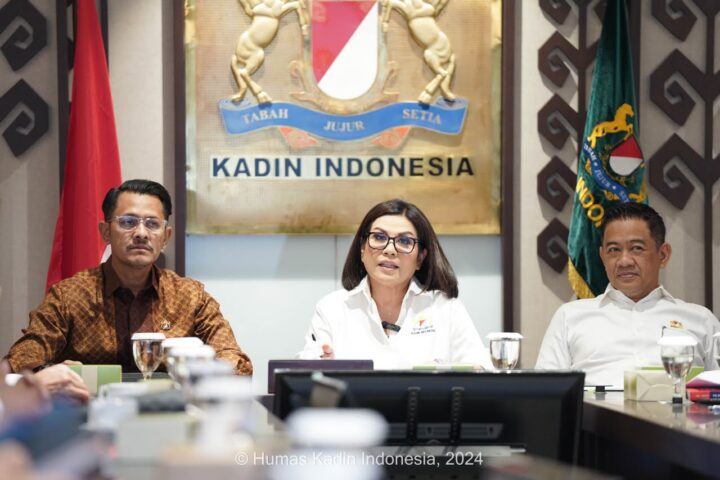
Kadin Indonesia's Transportation and Supply Chain Sector held a National Coordination Meeting (Rakornas) to identify the potential, contribution, and challenges in the transportation and logistics sector to national economic growth on Monday, (26/8/2024).
In the last two decades, the transport and logistics sector in Indonesia has become one of the main pillars in supporting national economic growth. The sector plays a vital role in facilitating the flow of goods and services, connecting production centres with markets, and ensuring smooth domestic and international distribution. With Indonesia's vast territory consisting of thousands of islands, the effectiveness and efficiency of the transport and logistics sector is key in optimising the national economic potential.
However, this sector still faces significant challenges. These range from uneven infrastructure, limited transport access in remote areas, to inefficiencies in supply chain management. These challenges have hampered the transport and logistics sector's ability to contribute optimally to economic growth. At the same time, there are great opportunities to improve the competitiveness of the sector, especially with technological developments, increased investment, and the government's commitment to improving national infrastructure.
Vice Chairman of the Coordinator for Human Quality Improvement, Research and Technology and Innovation, Carmelita Hartoto, said the challenge is reflected in the portrait of the Logistics Performance Index (LPI) issued by Bang Dunia. Indonesia's logistics performance in 2023 is ranked 63rd, or down 17 places from 46th in 2018.
‘Although the LPI report is controversial, this portrait should be material for our evaluation, especially in finding bottlenecks in the logistics sector that make the ranking decline. We also know that many breakthrough regulations have been issued in the transport and logistics sector. But, it is still not enough to be a solution. We need out-of-the-box ways of thinking and execution to overcome problems in the national transport and logistics sector,’ Carmelita explained.
Head Department of the Logistics and Supply Chain of Kadin Indonesia, Akbar Djohan, explained several aspects that must be the main focus, including ease of licensing, entrepreneur-friendly capital, interest subsidies, tax relaxation, tenure extension, special institutions and the only government agent for logistics problems that have been carried out partially.
Another main focus, continued Mr Akbar, is on taxation that is not complicated and does not burden businesses, especially small businesses. Likewise with other regulations related to licensing and multimodal operations, the availability of diesel fuel, to incoterms and negative investment lists (DNI).
‘Pro-business taxation, for example, such as importation restrictions for materials that cannot be produced domestically so that they are not subject to high taxes, both for logistics, shipping and crates,’ he said.
According to him, policies and breakthroughs related to capital are also needed. The current policy has not been able to answer the problems faced, the high bank interest makes it difficult for domestic transport services to compete with actors from abroad who can get small interest rates, such as Japan 2%, while Indonesia can reach 10%.
National Economy
Regional Economy